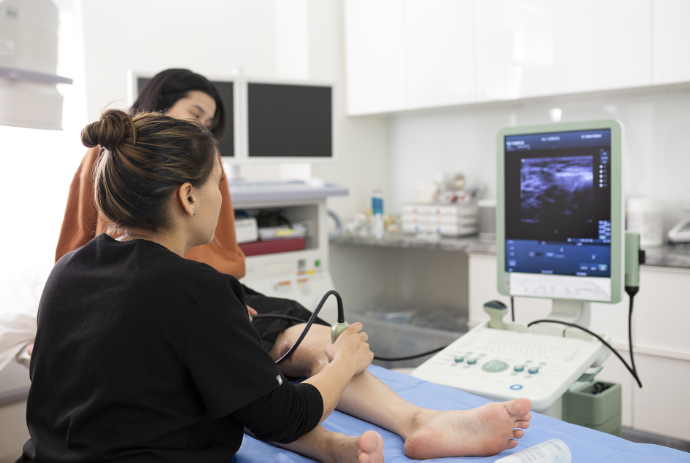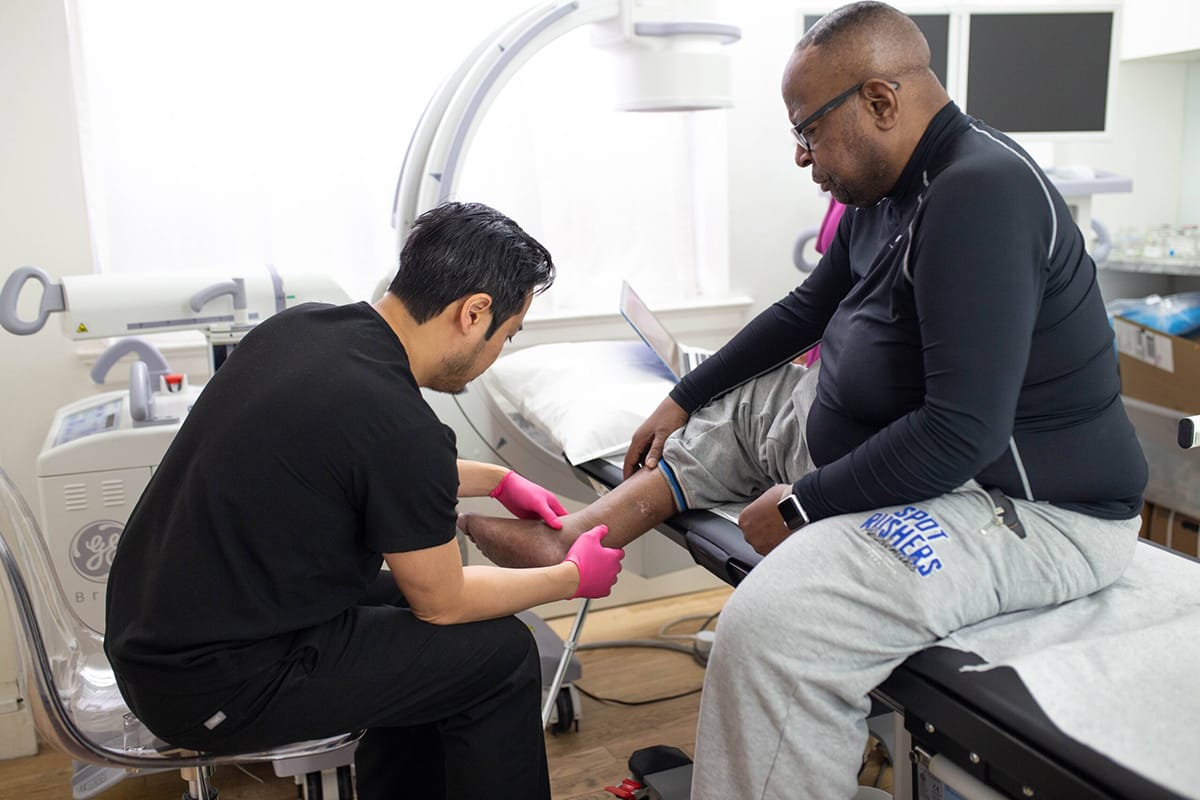Vein clinics are responsible for returning blood to the heart; your body's veins are vital to circulation. Blood will flow in the incorrect direction when the vein valves are unhealthy, causing blood to pool in the veins instead of travel to the heart.
Several conditions, including pregnancy, blood clots, age, and family history, can bring on vein insufficiency. Some people over forty-five suffer from vein disease.
Leg soreness, cramps during the night, edema, leg heaviness, and spider and varicose veins are signs of venous insufficiency.
What is a Vein Doctor Called? You will be examined in the vein therapy clinic by a phlebologist a specialist physician. After evaluating your medical record and physical review, a trained vascular ultrasonography technician will use vascular ultrasound technology to look for vein insufficiency.

How can a vein clinic help?
There are numerous medical professionals to choose from. Since each has a unique area of expertise, they are all authorities in certain aspects of medal care. Vein care is one such area that is frequently provided at vein clinics. Vascular and vein specialists with vast experience in diagnosing, treating, and preventing vascular and vein illnesses work in vein clinics.
What is a vein clinic? Vein clinics provide treatments for a wide range of vein-related health conditions. Vein clinics treat a wide range of vein-related disorders in addition to treating stroke survivors and individuals with impaired circulation.
Continual Venous Insufficiency
This disorder arises when the veins have trouble returning blood to the heart from the extremities or your limbs. Blood will pool in the veins when a blood clot or other problem restricts blood flow (typically in the legs). Venous shortage is the outcome of this.
Carotid artery disease
This disorder develops when the carotid arteries obstruct and become ineffective in moving blood. Your head and brain receive blood flow from your heart through the carotid arteries. Plaque accumulation or atherosclerosis is frequently the culprit.
Cardiac Peripheral Ultrasound
This cardiovascular disorder is characterized by constricted arteries obstructing sufficient oxygen-rich blood flow to the extremities. Atherosclerosis, or the accumulation of plaque, is usually the cause of the constriction of the arteries.

Spider and Varicose veins
Enlarged veins that look twisted and discolored on the skin's surface are called varicose veins, which are more common in the legs. Spider veins are smaller and more comparable to the skin's surface. Blood flow backward into veins and staying there results from malfunctioning vein valves, which can lead to both problems.
Deep vein thrombosis
This disorder arises from forming a blood clot in a large, deep vein. The arms, legs, and pelvis are where it is most prevalent.
To wrap it up
The vein specialist doctor will collaborate with you based on your needs to determine the best course of action. This may involve ambulatory phlebectomy, endovenous thermal and nonthermal ablation, liquid and foam sclerotherapy, and, in certain situations, surgical vein ligation and removal.
In the past three decades, advances in vein disease treatment have allowed patients to get expert guidance from professionals committed to understanding and treating vein disease at a vein treatment clinic.